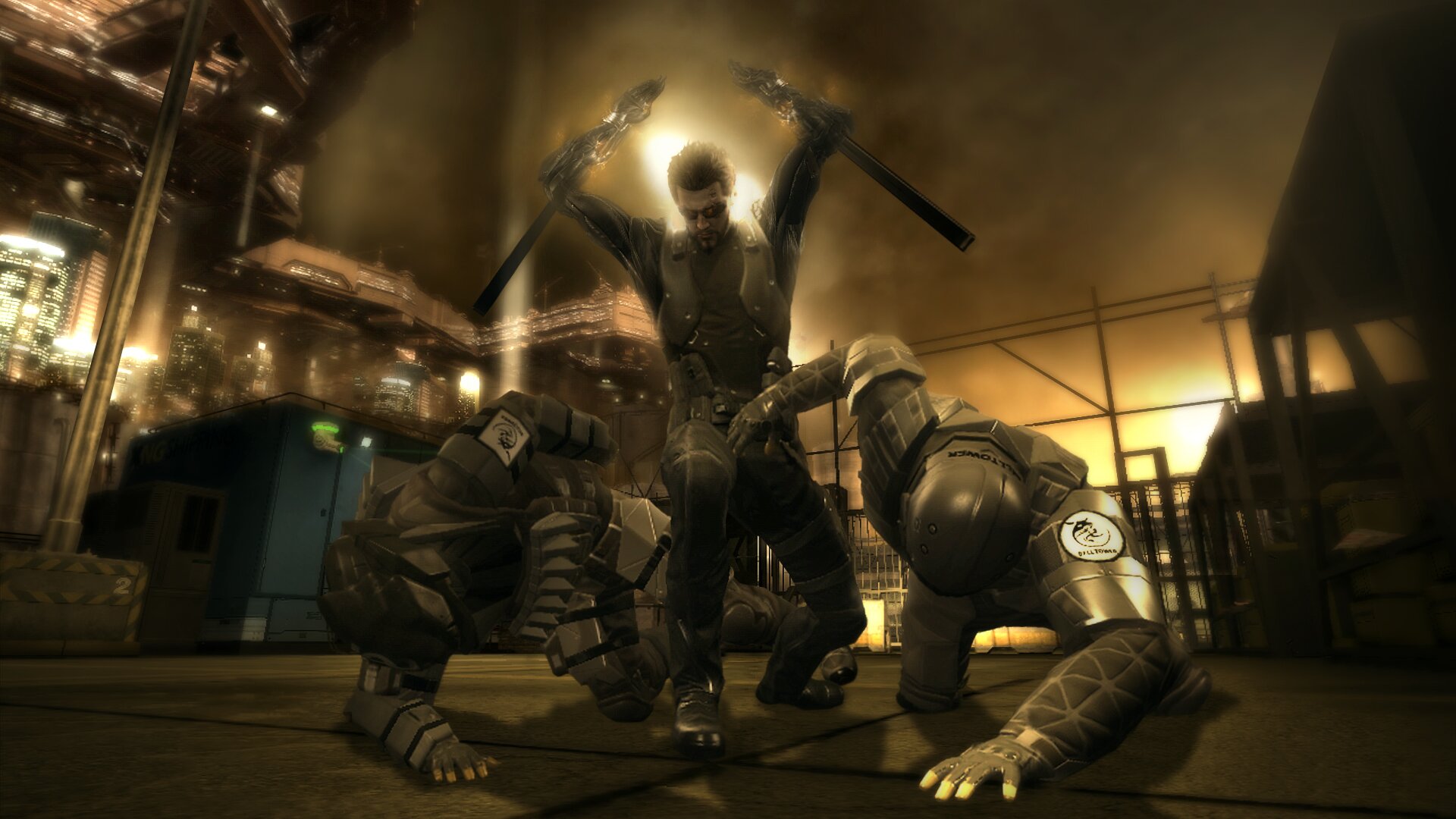
It has been over a decade since the first Deus Ex game was released. It was praised for its mission design which allowed players to tackle each task in a multitude of ways. Human Revolution is now out eleven years on and attempts to do the same, reviving the old franchise, but has Eidos Interactive bitten off more than it can chew?
Set in 2027 the game follows Adam Jensen, a high tier security officer for biotechnology firm Sarif Industries. After an attack on his company’s research department, Adam’s lady friend and several key scientists are kidnapped from Sarif Industries. Not only that but research into a mysterious new form of cybernetic enhancements is stolen and during the attack Jensen is left injured and is then forced to take several cybernetic enhancements in order to survive.
The game’s story has an interesting premise with a constant battle between the idea of humanity versus technology. It plagues the story and Adam Jensen himself. While the story could have fallen into the trap of throwing this in your face constantly through storyline changes and blatant ‘OMG EVIL TECHNOLOGY’ moments. Instead it focuses more on Jensen’s own battle with his new body and his moral compass within Sarif Industries. By doing this the storyline never drags down the game too much.

As you track down the mystery group that attacked Sarif Industries you take on a set of different missions including infiltration, destroying satellites and stalking enemies. There may not be a huge amount of variation in the type of missions, but how you tackle them is entirely up to you.
There is a clear emphasis on stealth and we think that most players will play the game this way. You can stalk the shadows, use vents and avoid enemies altogether. If you have the style of Schwarzenegger then you can smash through a wall, take out several enemies and proceed to fill enemies with lead from your heavy machine gun. There pretty much is an alternate route or method to tackle any mission and it is refreshing to play a game that doesn’t constantly point you in the right direction.
The game is played out in first person, switching to a third person view when in cover. This mechanic works extremely well allowing for stealth and FPS fans to enjoy the game, although the upgrade system clearly puts more emphasis on the stealth aspects of the game.
There’s plenty to upgrade as well. You can upgrade conversation skills, learn how to bust through walls or make your sneaking skills better. By the time I had finished the game (including the majority of side missions) I was nowhere near to acquiring the full amount of upgrades, something which gives the game replay value. Even the guns have upgrades and attachments to help with how you tackle each scenario.
 The game can get a little repetitive at times depending in your play style. Takedowns for example can be utilised to take down an entire room of enemies. At its worst this can be abused, but slow recharging battery bars try to combat this, forcing you to mix up your play style a little.
The game can get a little repetitive at times depending in your play style. Takedowns for example can be utilised to take down an entire room of enemies. At its worst this can be abused, but slow recharging battery bars try to combat this, forcing you to mix up your play style a little.
The fact that you can play the entire game without killing any characters (bar some bosses) is a testament to how well the it has been designed. If you want to play completely stealthily, sneaking past enemies, knocking out the odd one or two, then you can. If you are more gun-ho person you can still bust through a wall and decimate enemies with a heavy machine gun if you wish. The fact there is an achievement for completing the game without killing anyone is a testament to how well it has been designed.
Deus Ex: Human Revolution has successfully reinvented itself in the 21st century and while it isn’t perfect it certainly felt like a breath of fresh air.


 January 11th, 2012
January 11th, 2012  ramdewarkiron
ramdewarkiron



 Posted in
Posted in  Tags:
Tags: 